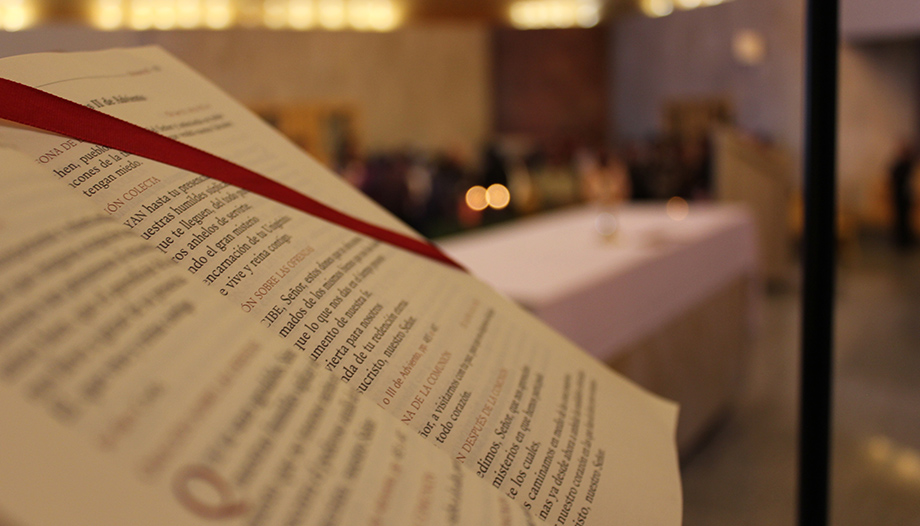The Church will always have to face the hostility of the world and the unfaithfulness of some of its members. These are hard realities, but we have to face them, and Jesus warns us about them in today's Gospel. Recalling the betrayal of Judas, Jesus prays for the faithfulness of future disciples, but he does not hide from us what he calls the "hatred" of the world. "I have given them your word"pray to the Father, "and the world has hated them because they are not of the world, any more than I am of the world.".
The first reading deals with similar themes. After the Resurrection, Peter, as the first Pope, sees the need to complete the number of the Twelve after the betrayal and suicide of Judas. This was foretold in Scripture, he says, as does Jesus in the Gospel, although he makes it clear that this does not excuse Judas. He was not a blind instrument of fate. He acted freely. "None was lost but the son of perdition, that the Scripture might be fulfilled". Judas could have been a son of God. He made himself a son of perdition, a son condemned to hell. Thus, God's foreknowledge of human sin does not mean that he provokes or compels us to commit it. Parents understand this perfectly well: knowing their children so well, they can guess how they will react in certain circumstances. But they do not force them to do it. The only difference between us and God is that, while we can only guess, He knows.
Thus Christ, as God, foresees the resistance of the world and the defections within the Church. This is the sad history of humanity. Sad but not tragic. First of all, because human beings continue to exercise freedom. It is not a pagan destiny in which we are condemned beforehand. Our actions decide our fate. Then, because, ultimately, if we want to, we belong to God:"They are not of the world, just as I am not of the world.". And thirdly, because Christ has given us the gift of truth: "The gift of truth is the gift of God".Sanctify them in the truth; your word is truth.". Christ does not ask his Father to take his disciples away from the world - rather, he has sent us to him - but only that "... we be sent to him".keep them from the evil one". Yes, hostility from without and defections from within, but also the greater realities of our freedom, our belonging to God and his protection, and the gift of truth. This is why, in spite of everything, Jesus can pray for his disciples so that "... they will be able to be free.have in themselves my joy fulfilled".









